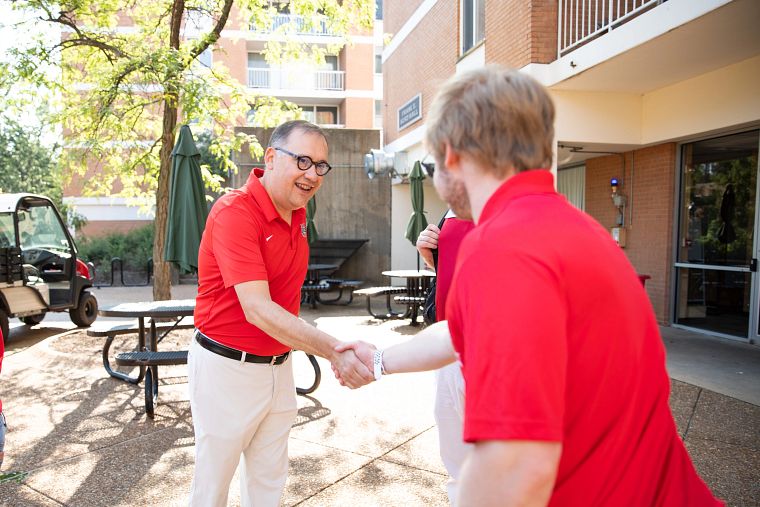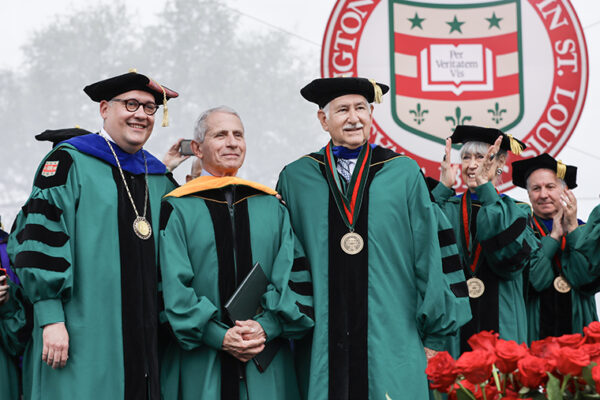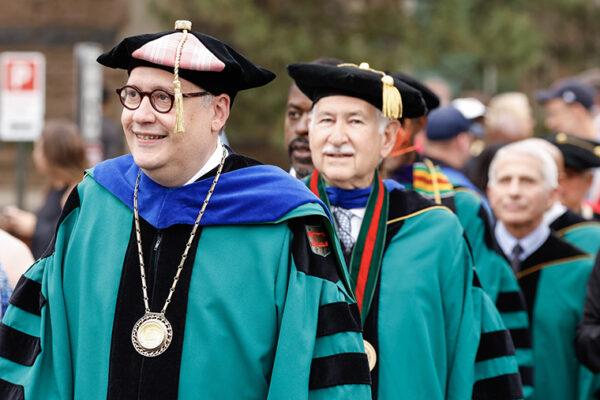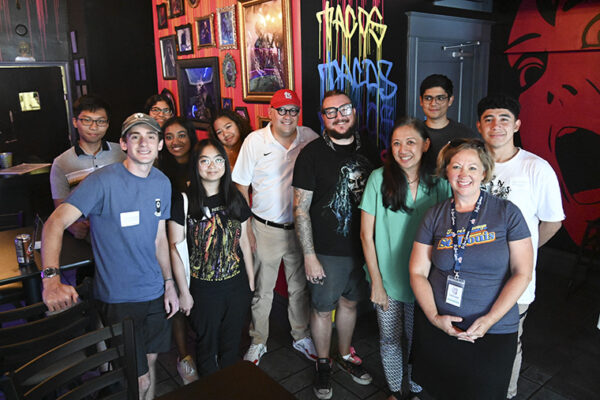At Washington University in St. Louis, we’re proud of our global reach as an educational and research institution. But we are equally proud to be a leader in our hometown of St. Louis. In many ways, we are who we are because of where we are. In his comprehensive tome, titled Washington University in St. Louis, A History, the late scholar and former provost Ralph E. Morrow wrote: “Often [the university and the city] have collaborated to their mutual advantage. Sometimes, different outlooks and understandings have brought them into collision. Once in a while one has seemed aloof from the other. But always, each has made a difference in the other.”
From the earliest days of my chancellorship, I’ve been calling upon all of us to be Washington University in St. Louis, for St. Louis — to look with clear eyes upon our relationship with our region, to deepen that relationship for mutual benefit and to listen, learn and collaborate with local institutions to create new opportunities for health, equity and prosperity for all St. Louisans.
“Our work toward a better St. Louis is not at the expense of our global mission. Rather, it enhances it. For example, public health interventions that prove successful locally are more easily scaled to broader populations. And, conversely, interventions that have made a difference in populations across the world can inform our work here at home.”
Chancellor Andrew Martin
A guiding principle of our “Here and Next” strategic vision is our commitment to community impact. In the year since our launch of Here and Next, we’ve made exciting progress toward this goal. We’ve reimagined our adult education model, and the new School of Continuing and Professional Studies (CAPS) is enabling modern adult learners in the region to earn a WashU education in balance with their work and family responsibilities. We’re working to stand up the St. Louis Confluence Collaborative, a place for researchers across all schools and disciplines to come together to advance innovative and impactful community-engaged research, teaching and practice, with St. Louis outcomes at the forefront. The soon-to-launch new school of public health, our first new school in a hundred years, will be a gamechanger for the region. And, much to our students’ delight, this fall we welcomed five new restaurants to campus, each one an outlet for a local minority- or woman-owned business, which redirected $5 million of our budget to these businesses. And these are just a few new additions to the many fruitful partnerships and initiatives that have been thriving in our region for years.
Our work toward a better St. Louis is not at the expense of our global mission. Rather, it enhances it. For example, public health interventions that prove successful locally are more easily scaled to broader populations. And, conversely, interventions that have made a difference in populations across the world can inform our work here at home.
It’s my hope that Washington University in St. Louis can become a model for other universities who seek to enhance the safety, health and vibrancy of their regions, and we look forward to sharing more about our outstanding work in St. Louis and for St. Louis as it unfolds.



